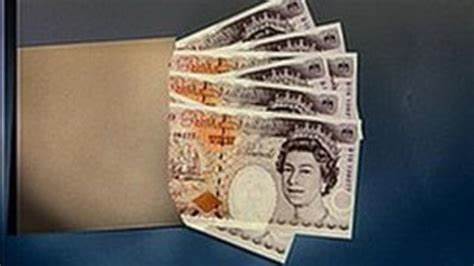Businesses across the UK can take advantage of the Chancellor’s capital allowances package from today as the new business tax year begins.
The package, announced at Spring Budget, comprises 100% full expensing and a 50% first-year allowance. It will mean the UK has the most generous capital allowance regime in the OECD worth £27 billion over the next three years, amounting to an effective £9 billion a year tax cut for companies.
The OBR expects this regime to boost investment by 3% over three years. To mark the milestone, Financial Secretary to the Treasury visited Brompton Bikes in Greenford, London, who’ll be using full expensing to stimulate their growth.
Victoria Atkins, Financial Secretary to the Treasury, said: “We are determined to make the UK the best place in the world to do business, which is why from today businesses can start to benefit from the raft of tax cuts on offer to boost their growth.
“With full expensing, the more a company invests the less tax they’ll pay, and I encourage companies of any size to take full advantage of this world-leading reform.” With the new 25% corporation tax rate coming in for the top 10% most profitable companies from today, and the super-deduction ending yesterday, the Chancellor used his Spring Budget to ensure that the UK’s tax system fosters the right conditions for enterprise, investment and growth.
Full expensing lets companies deduct 100% of the cost of certain plant and machinery investments from their profits before tax. It is available from 1 April 2023 to 31 March 2026. It provides the same generosity as the super-deduction, saving firms up to 25p in every £1 of qualifying investment and is for main rate assets – such as construction, warehousing and office equipment.
The 50% First-Year Allowance lets companies deduct 50% of the cost of other plant and machinery, known as special rate assets, from their profits during the year of purchase. This includes long life assets such as solar panels and lighting systems.
Minister Victoria Atkins visited Brompton Bikes in Greenford this week to see how these capital allowances will be used to help the firm invest and grow. The minister toured their factory, viewing a brand new state-of-the-art Autobraze machine and the production line. She also met a selection of 15 trainees currently on Brompton’s training programme.
Phill Elston, Operations Director at Brompton Bicycle, said: “The announcement of a super deduction replacement is great news for us. In previous years it has meant we could invest significantly in our production capabilities, upgrading equipment and building a more progressive factory; which has seen us move from making circa. 45,000 bikes per year in 2019, to around 100,000 bikes per year in 2022.
“Our mission is to improve how people travel around cities, which in turn creates happier communities, and the new expensing scheme helps to accelerate that goal.” Other tax measures taking effect today include new domestic and ultra-long Air Passenger Duty bands.
For passengers flying in economy class, the new domestic band will be set at £6.50, a 50% cut to bolster UK-wide connectivity, while the new ultra long-haul band will be set at £91, meaning those who fly the furthest will pay the greatest level of duty.
Transport Secretary Mark Harper said: “Transport binds the United Kingdom together, and this cut to Air Passenger Duty will make travelling between our family of nations easier than ever. Boosting transport links between our four nations sustains jobs, creates opportunities and is an essential part of this Government’s plan to grow the economy.”
Further tax measures include:
- To help household budgets further, the planned 11 pence rise in fuel duty has been cancelled, maintaining last year’s 5p cut for another twelve months, saving a typical driver another £100 on top of the £100 saved so far since last year’s cut.
- More business rates relief, as part of the Chancellor’s £13.6 billion package from 2022’s Autumn Statement. This includes the freezing of the multiplier and the introduction of 75% relief for retail, hospitality and leisure businesses, helping the high street to thrive and compete with online firms.
- Extending creative sector reliefs: theatres, orchestra and museums and galleries will benefit from a further 2 years of tax relief rates of 45%/50%. The museums and galleries exhibitions tax relief sunset clause will be extended for a further 2 years to allow these organisations to fully benefit from the extension of the highest rates.
- The Annual Investment Allowance (AIA), an existing measure which also supports business investment, has been increased permanently to £1m today. This covers the investment needs of 99% of UK businesses.
- Rebalancing the rates of Research and Development Expenditure Credit and the R&D SME scheme to ensure taxpayers’ money is spent as effectively as possible. As a result, today the UK now offers the joint-highest uncapped headline rate of R&D tax relief support in the G7 for large companies.
- The government also committed to considering the case for further support for R&D intensive SMEs, and at Spring Budget announced that from today there will be an increased permanent rate of relief for the most R&D intensive loss-making SMEs. To support modern methods of innovation, for accounting periods beginning on or after today, businesses will also be able to claim for the costs of datasets and cloud computing under the R&D tax reliefs.
- Expanding the Seed Enterprise Investment Scheme (SEIS) to help more UK start-ups raise higher levels of finance. This package will help over 2,000 start-up companies access finance.
- Expanding the availability and generosity of the Company Share Option Plan (CSOP) scheme which will widen access to CSOP for growth companies and simplifying the process to grant options under the Enterprise Management Incentives (EMI) scheme.
On 6 April 2023 personal tax changes taking effect include removing tax-barriers that the medical community have made clear stop doctors working, delivering on the Prime Minister’s priority to cut NHS waiting lists so people can get the care they need more quickly. The pensions annual tax-free allowance will increase by 50% from £40,000 to £60,000, the Money Purchase Annual Allowance will rise from £4,000 to £10,000, and the Lifetime Allowance charge will be removed. The Office for Budget Responsibility estimate around 15,000 individuals will remain in the labour market because of the changes to the annual and lifetime allowances, many of whom will be highly skilled individuals, including senior doctors in the NHS.
Qualifying Carers Relief will be uprated with inflation from 6 April 2023 to representing a £450 per year income tax cut for carers. The uprating increases the amount of income tax relief from £10,000 to £18,140 plus £375-450 per week for each person cared for.











